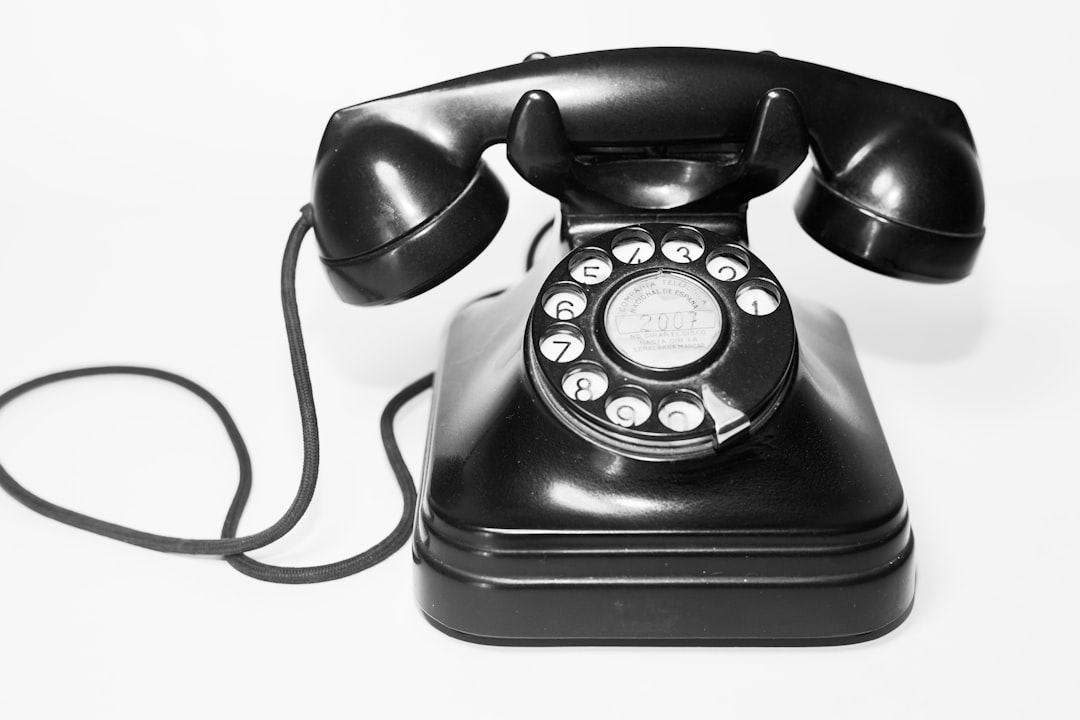In Nevada, the state's Do Not Call Registry empowers residents to block unwanted telemarketing calls by registering their phone numbers. The process is simple, but its effectiveness depends on telemarketers' compliance. While the registry has reduced nuisance calls, criticism arises from less-reputable sources and legal challenges regarding loopholes and list maintenance. Experts suggest expanding the registry, increasing penalties, using technology, and improving enforcement to better protect Nevadans from intrusive sales calls, with specialized do not call lawyers offering legal recourse.
“In an era where telemarketing calls can feel like an incessant storm, Nevada residents have found a shield in the state’s Do Not Call Registry. This comprehensive guide delves into the effectiveness of this registry, exploring its legal foundations and real-world impact on consumers. Expert opinions from renowned do not call lawyers and attorneys in Nevada shed light on both successes and challenges, including loopholes and proposed improvements. For those seeking protection against unwanted calls, understanding these insights is crucial, whether you’re a resident considering enrollment or a business operator looking to adhere to regulations, as outlined by top do not call law firms in Nevada.”
The Do Not Call Registry: An Overview for Nevada Residents

In Nevada, the Do Not Call Registry is a state-run program designed to protect residents from unwanted telemarketing calls. This registry allows individuals to opt-out of receiving marketing phone calls, ensuring their privacy and peace of mind. It’s a free service that offers Nevadans control over their telephone communications by preventing specific types of calls, such as those from telemarketers, sales companies, or political organizations, from reaching their phones.
For Nevada residents seeking to curb these intrusive calls, registering with the Do Not Call Registry is straightforward. It involves providing personal information and choosing whether to block calls from specific categories or all sources. Once registered, participants are added to a state database, prompting telemarketers and call centers to respect their decision and refrain from placing calls to that number. Individuals can also authorize certain types of calls, like those from local charities or survey organizations, through specialized exemptions within the registry system. This balance ensures Nevadans can enjoy a quieter, more controlled phone environment while still allowing for important communications.
Legal Perspectives on the Registry's Effectiveness in Nevada

The Do Not Call Registry in Nevada has been a subject of interest for legal professionals and consumers alike. From the perspective of do not call lawyers and attorneys in Nevada, the registry’s effectiveness is mixed. While it provides a powerful tool for individuals to protect their privacy and reduce unwanted calls, its success largely depends on adherence from telemarketers and collection agencies. Many do not call law firms in Nevada report varying levels of compliance, with some businesses honoring the registry and others continuing to make prohibited calls despite registration.
This discrepancy highlights a key challenge—enforcement. Despite the best efforts of regulatory bodies, enforcing the Do Not Call laws can be an ongoing battle. Do not call attorneys argue that stricter penalties and more robust monitoring are necessary to ensure the registry’s effectiveness in Nevada. Until then, residents may find solace in the knowledge that they have a legal recourse through do not call lawyers who specialize in protecting consumer rights.
Real-World Impact: Consumer Experiences with the Do Not Call List

The Do Not Call Registry in Nevada has had a significant real-world impact on consumer experiences with telemarketing calls. Many residents have reported a notable decrease in unwanted sales pitches and robocalls since enrolling in the list, indicating a successful reduction in nuisance calls. This shift is particularly evident among those who were previously deluged with calls from various sources, including do not call lawyer Nevada, do not call attorneys Nevada, and do not call law firms Nevada.
Consumers have expressed relief and satisfaction with the registry, highlighting its effectiveness in providing a peaceful environment free from intrusive marketing. This positive feedback underscores the value of the do not call lawyers Nevada and do not call attorneys Nevada efforts in empowering individuals to take control of their communication preferences. As a result, residents are better able to concentrate on important matters without being disturbed by relentless telemarketing calls.
Challenges and Loopholes: What Lawyers Say About the Registry

The Do Not Call Registry in Nevada has faced its fair share of criticism from legal professionals, particularly do not call lawyers and attorneys in the state. One of the primary challenges is the registry’s effectiveness in curbing unwanted calls. Many do not call attorneys in Nevada argue that despite the registry’s intent, it hasn’t significantly reduced telemarketing calls, especially from less-reputable sources. These lawyers often point to loopholes and gaps in the legislation that allow certain types of calls to bypass the registry altogether.
Additionally, do not call law firms in Nevada have expressed concerns about the burden of maintaining accurate client lists and ensuring compliance. They argue that while the registry is a good starting point, it’s not a comprehensive solution to the problem of intrusive telemarketing. As such, many do not call lawyers advocate for stricter regulations and better enforcement mechanisms to protect consumers from relentless sales calls.
Future Improvements: Experts Propose Strategies for Enhanced Protection

The current Do Not Call Registry in Nevada has shown significant success in reducing unwanted telemarketing calls, but experts believe there’s room for improvement. To enhance protection for Nevadans, they propose several strategies. One key suggestion is to expand the registry’s reach by including more types of businesses and organizations, ensuring a broader scope of coverage. Additionally, implementing stricter penalties and fines for violators could serve as a stronger deterrent.
Another important area of focus is technology. Experts recommend utilizing advanced caller ID systems and artificial intelligence to automatically flag and block calls from registered numbers. They also suggest collaboration between telecommunications providers and law enforcement to monitor and enforce the registry effectively. By combining these approaches, Nevada can create a more robust system that better protects residents from intrusive telemarketing practices, aided by the expertise of do not call lawyers and attorneys in the state.






